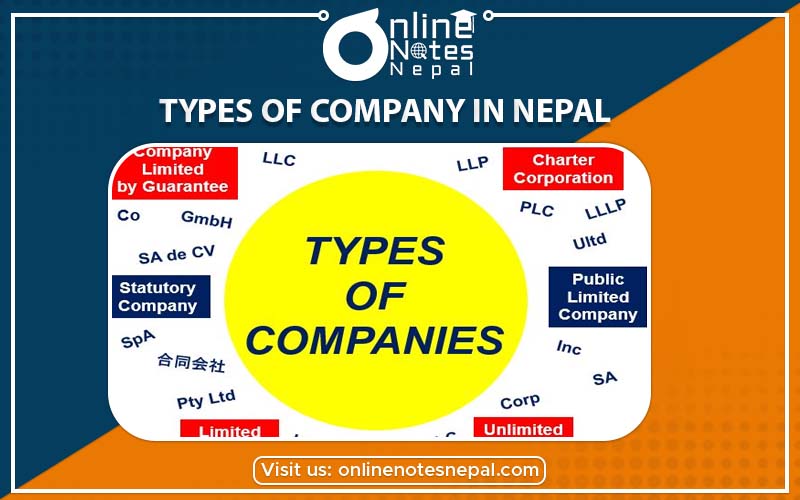Published by: BhumiRaj Timalsina
Published date: 19 Jan 2022

A company which is established under a special act passed by the parliament is known as a statutory company. A company which is established in 'Nepal under Nepal Company act, 2053' is called known as a limited company. This note has information about types of company in Nepal.
A company which is established under a special act passed by the parliament is known as a statutory company. The scope, objectives, power, rights and functions are defined by the act under which it is established. All the activities of the company are governed by the act. Such company is established by the government for promoting a special sector of the economy which is of national importance. It is also known as a public enterprise.
A company which is established in Nepal under 'Nepal Company act, 2053' is known as a limited company. It is also known as a registered company. It is incorporated and operated under the provision of the company act. In a limited company, the liability of the shareholders is limited to the face value of the shares held by them. The private properties of the shareholders cannot be claimed by the creditors of the company to recover their debts. A limited company can be classified into two types:
Differences between Public and Private Limited Companies
| Bases of difference | Public company | Private company |
| The number of shareholders | It required at least 7 members for its incorporation, but its maximum number is unlimited. | It can be established by a single member and its maximum number is limited to 50. |
| Transfer of share | It does not restrict the transfer of its share. | It restricts the transfer of its share. |
| Prospectus | It issues a prospectus for inviting people to subscribe to its share. | It can not issue a prospectus for inviting people to subscribe to its share. |
| Commencement of business | It required the certificate of incorporation and the certificate of commencement of business to start its business. | It required only the certificate of incorporation to start its business. |
| Use of words | It uses Ltd. | It uses Pvt Ltd. |
| Publication | It requires publish its annual financial statement. | It doesn't require to publish it's annual financial statement. |
| Statutory meeting | It requires statutory meeting. | It does not require statutory meeting. |